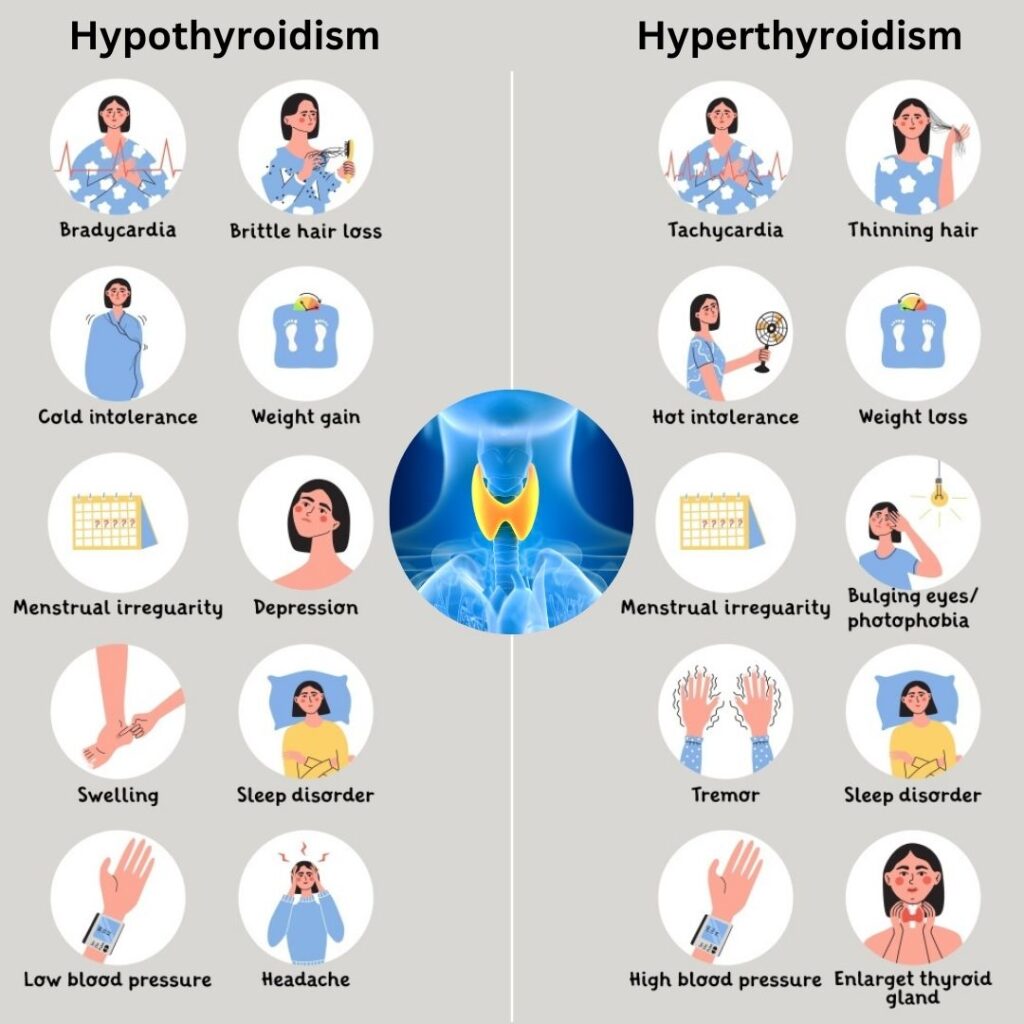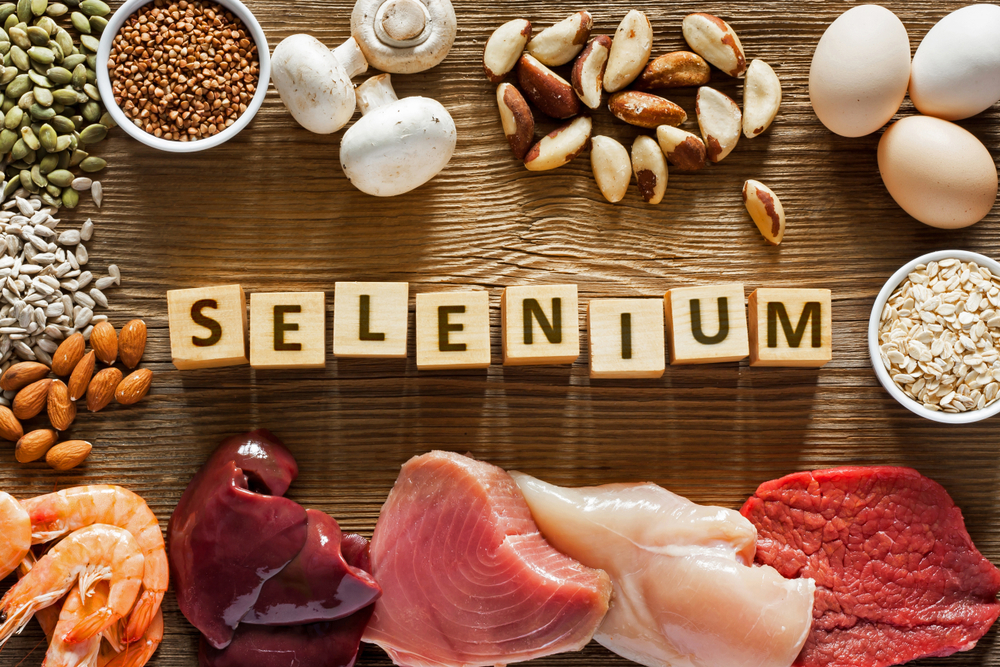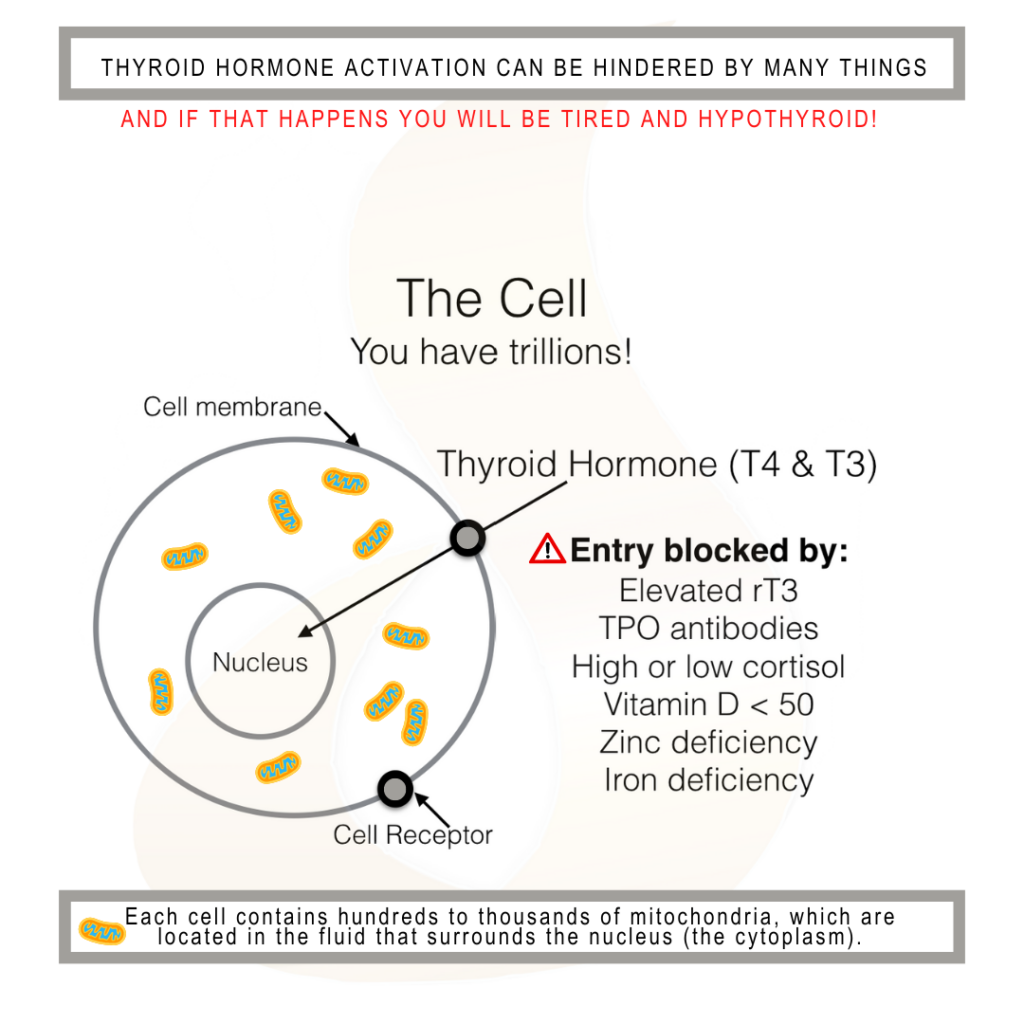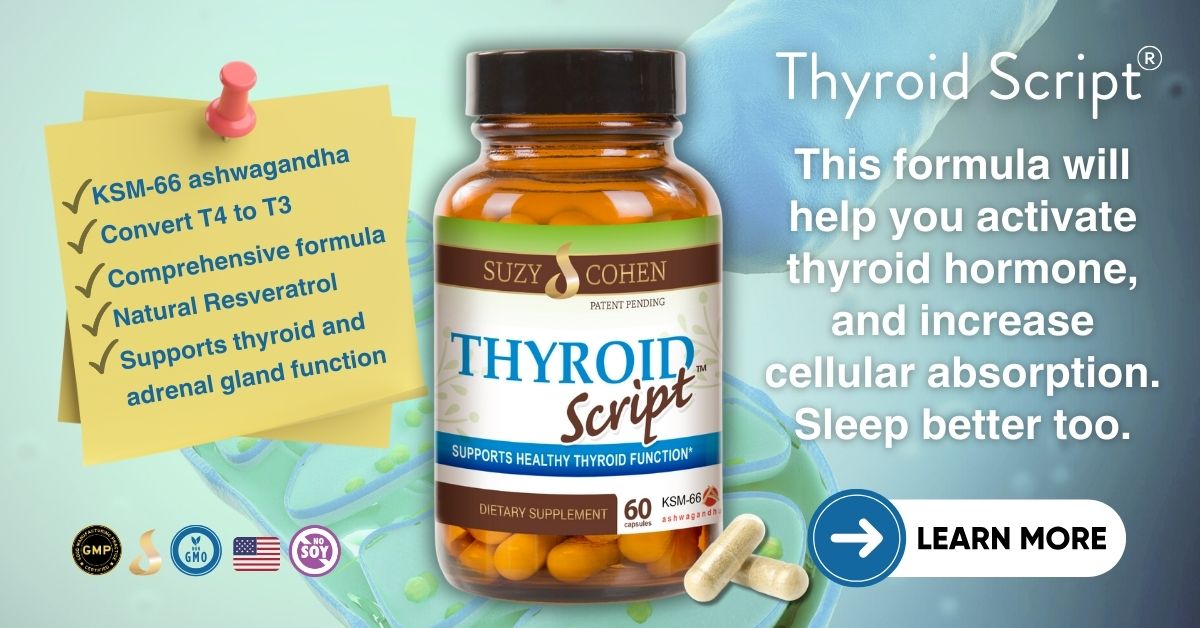What's On This Page?
ToggleIn this article, we’re diving into a topic close to my heart—and to many of yours — the intricate world of thyroid health. We’ll cover how selenium and other nutrients and herbs can help with Hashimoito’s, Graves’ disease and more.
Whether you’re struggling with Hashimoto’s, wrestling with Graves’, or just curious about how your lifestyle choices can impact your thyroid gland, you’ve come to the right place.
Inspired by a heartfelt encounter at a recent book signing, where a reader shared how my advice profoundly changed his health, I’m fueled to share even more. Today, we’ll explore how everything from your morning coffee, to the medications in your medicine cabinet can play a pivotal role in your thyroid health.
Grab your notepad, because we’re about to uncover some crucial insights that could just be the key to transforming your health and vitality. Here’s the question from Barbara in Dallas: I have Hashimoto’s thyroid disease, and my husband has Grave’s. We are a perfect match because he makes too much and I make too little. Advice?”
Helping Thyroid, Hashimoto’s and Graves’ Disease
Located at the base of your throat, your thyroid produces hormones that control your metabolism (as in fat-burning ability) and regulate the rhythm of your heart and your body temperature. That explains why you eat like a bird and gain weight, while your husband eats a horse and stays thin. People like that either have a healthy thyroid and good metabolism or they have intestinal parasites!

Well, anyway, point is, one glitch in your thyroid and dangerous consequences can ensue, ranging from encephalopathy to heartbeat irregularities. Most people think hypothyroidism is strictly about fatigue, cold sensitivity and weight gain but news flash, it causes misery head to toe.
The opposite of hypothyroidism is hyperthyroidism, where excessive thyroid hormone is produced causing weight loss, rapid heartbeat, and heat intolerance (and 100 more symptoms). Hyperthyroidism is often referred to as Graves’ disease and auto-immune condition where the body attacks its own thyroid gland. A goiter in the neck can occur.
Whether you have hypo or hyperthyroidism, selenium is one trace mineral that may help. There are others including magnesium, iodine, iron and zinc. First, let me share the symptoms of both hypo and hyperthyroidism so you can understand those.
Selenium
Selenium has been shown in clinical trials to either slow the progression of, or reduce symptoms of thyroid conditions, meaning it can help any imbalance (hyper or hypo).* It seems to have an intelligence all its own. Selenium is directly tied to the health of your thyroid gland so as you read this, take notes, and discuss this antioxidant mineral with your doctor.

If your selenium levels are low, be sure to add some selenium-rich foods into your diet or take a selenium supplement. Selenium taken preventively as selenium citrate or selenium picolinate should be taken at 100 mcg once daily.
If your levels are low, however, I recommend shooting for 100-200 mcg daily. In rare cases, excess selenium can cause spots on your nails, nausea, vomiting, and nerve damage, so I always suggest talking to your doctor before beginning a new supplement.
One more thing, selenium-rich foods include walnuts, tuna (not too much, mercury!), shrimp, eggs, cheese, turkey, beef and oatmeal. I like Brazil nuts because eating four per day gives you about 200 micrograms of selenium.
I can tell you this though– your precious stash of selenium may be mugged by… wait for it… your medication!
The Drug Mugging Effect
Surprised? Well, unfortunately it’s true, your medicine might be crashing your thyroid over time, and this was covered in the selenium chapter in my book, Drug Muggers. Hundreds of medications have the potential to rob your body of selenium. Here are some common muggers of selenium:
- Acid reducing medications
- Antidepressants
- Corticosteroids
- Hormone-replacement therapy
- Birth control pills
- Breast cancer drugs
- Sulfonamides
If you take any of the medications listed above, selenium supplementation is critical for you. And just FYI, it’s not just medicine, certain medical conditions such as Celiac, ulcerative colitis or Crohn’s disease and IBS can affect nutrient status. Gastric bypass can as well. So can certain beverages like sugar-laden sodas, red wine, and alcohol consumption. The study of drug nutrient depletion is my specialty so if want to know what foods and drugs are slowly stealing the life out of you (and cheap ways to restore those nutrients), snag a copy of my best-selling book, Drug Muggers.
Thyroid Cancer
Thyroid cancer is the 9th most common cancer in the United States, and the scariest part is that the incidence has been increasing sharply since the mid-1990s.
I recall years ago, that even my childhood friend Jane developed this in her mid 20‘s, and it just came out of nowhere. She went through radiation and chemo and she’s okay now. I see her sometimes in Florida and adore her!
The fact that it’s on the rise must mean something, either our environment is assaulting us, or our immune system is over-run. The POPs (persistent organic pollutants) are rampant in our industrialized nation, and I’m convinced that these, and heavy metals have something to do with it. I discussed more about POPS in my 2024 article, Rethinking Paper Towels: 5 Reasons to Limit Use.

Dietary Allergens Like Gluten
I also wonder how much of a role pathogens play, and gluten. Oh yeah, gluten, big time. It attacks the thyroid. It’s a stretch for me to imply that it has anything to do with cancer because it does not (at least not that we can prove), but gluten absolutely affects the thyroid gland in a bad way, especially if you are sensitive. Just FYI, proteins in coffee look just like gluten so if you are Celiac, you would do yourself a favor avoiding coffee too, even decaf.
In March 2013, scientists discovered a certain gene is linked to the development of thyroid cancer. This gene usually STOPS tumor growth, and when lifestyle choices (that you have total control over like smoking) turn the gene off in your body, thyroid tumors are more apt to grow.
So we know this gene usually functions to stop tumors from growing but, in thyroid cancers, can be accidentally turned off. In some people the gene has been deleted altogether, making them extra susceptible to thyroid cancer without even knowing it! That’s why I can’t stress proper diet and supplementation enough. One of my favorite thyroid-loving nutrients is ashwagandha. It’s in my popular Thyroid Script which is for thyroid and adrenal caps.
Consider that Withania somnifera (it’s genus/species) supports thyroid AND adrenal health, you’ll keep this one close to your heart. In fact, I often suggest it as an option for people who can’t tolerate the T4 drugs such as levothyroxine (one brand is Synthroid). You see, ashwagandha (a.k.a. withania somnifera) has the ability to help hyper and hypo thyroid. In hypothyroid people, it helps you make more thyroid hormone.

It supports hormone health, it is an adaptogen so it nourishes those poor, tired adrenals that you’ve burnt out from taking care of a loved one, or from watching from watching Big Brother After Dark instead of sleeping.
So ashwagandha and selenium are two rock stars when it comes to improving the health of your thyroid gland, and protecting it from DNA damage (which leads to cancer sometimes). Selenium and ashwagandha both have anti-tumorigenic effects.
Speaking of genes, there are genetic factors that contribute to hypothyroidism, and you can find out if you’re at higher risk by taking a saliva test, offered by 23andMe.com
Researchers have identified these genes, which again, you can test for, and found that if you have them you have a higher risk for hypothyroidism. The genetic snps are “rs965513” and “rs2476601.” These two genes have already been reported in studies of thyroid malfunction and disease. Then there are two other genes that you can test for which give you higher odds of hypothyroidism and dysregulation of your immune system. Makes me think these genes are tied to autoimmune forms of hypothyroidism. The snps are “the C version of rs4915077 in the VAV3 gene” and the other is the “T version of rs3184504 in the SH2B3 gene.”
Leptin Hormone
Leptin is a hormone that has a strong bearing on how much thyroid hormone is produced by your thyroid gland. Leptin is technically a protein that’s made in fat cells, and it’s good for you. Leptin is your ‘stop sign’ for eating. When your body secretes leptin, you start to feel full… not that you stop eating (because there’s always room for dessert right) but leptin gives you that sense of satiety and you should listen to it. When you get that sense of fullness caused by leptin, step away from the fork!
Leptin Signaling Affects Thyroid Health
I know YOU don’t do this, but some people over-eat. It happens I get it! I do it!
I was recently at an Indian buffet and I had 3 servings of Tandoori chicken, 2 curry chicken, an unidentifiable chickpea dish, a bucket of vegetable korma and 2 Samosas. 😜
I relieved my guilt by eating something green ie the mint chutney! I felt my leptin release somewhere around the second serving of ‘Aloo Gobi’ cauliflower potatoes, (oops, I forgot to tell you about that) but like a Champ, I kept eating. I almost knocked out a 10-year old kid, racing for the carrot pudding 😂 (gajar halwa).
I convinced myself that I should get my money’s worth for this $12.95 buffet, leptin or not. Sam (amused by my lack of self control and poise) risked his life by taking some pictures of the me, but I allowed him not because I wanted to, but because my mouth was full and I never talk with my mouth full 😂😂😂 Well, like I said, stuffing your face happens! For me, this display of carnage is rare I just love Indian cuisine…
If these indulgences happen frequently, so that you are eating too much on a consistent basis, then you will become “leptin resistant” and your skinny jeans display an unwanted muffin top. Spandex works well here. In fact, spandex is what I’ll wear when I go back to that buffet.
People, pay attention to leptin! If you don’t, you become leptin-resistant. Then, no matter how much leptin is secreted from your cells, your brain doesn’t see the signal to stop eating, it thinks there’s a famine going on. It’s like Pavlov’s dog, you become conditioned to see leptin and ignore it, and keep eating.
With leptin resistance, your brain thinks your body is starving. I know this sounds ridiculous to you, but it is very common, dare I say it is epidemic, and it affects your thyroid gland… badly!
When leptin resistance happens in the body, it basically ‘tells’ your thyroid gland via complex signaling hormones to slow down metabolism and stop burning food for calories. In other words, it tells you to hold on to fat to survive the famine (remember it thinks you are starving to death).
Leptin resistence = Fat storage
Whenever you go on a diet, and then come off of it, leptin commands that any calories from the food you now eat (after the diet) get stored as fat so that you don’t go back into starvation mode. You see, your body doesn’t know that your diet is over with for good, it thinks at any time you are going to cut calories, so it wants to make sure you don’t die.
Leptin is trying to help you. But if you overeat (after your diet), fat-burning capabilities come to a screeching halt thanks to your thyroid signaling and all those carolories you eat get stored as fat. Even if you eat like a bird, doesn’t matter, your brain and thyroid are convinced you will go into starvation mode again, and seek to protect you.
Yo-Yo Dieting is Bad
This is why yo-yo dieting is bad. I mean BAD. Why do you think we have hundreds of diet books, as a general rule, they don’t work. Edit what you eat, don’t diet. Correct hormonal imbalances, and adrenal dysfunction. Read the chapter “Lose Fat While You Sleep” in my first book The 24-Hour Pharmacist for information on how to edit what you eat and make the weight loss stick for more than 3 months.
Now, one more thing, if you have an increased TSH (Thyroid Stimulating Hormone), it could predict diabetes, weight gain and high insulin, which by the way is a cause for many complications. Please take a moment when you’re done with today’s article, and read my other article, Many Diseases Linked to High Insulin.That article will change the way you think about diabetes, weight and cancer. Feel free to use my search box to find articles on any topic.
Leptin resistance drives obesity, by inflaming the thyroid gland. And this is interesting, if you have poor coordination and bump into things more often than you should, this could be due to a thyroid problem, driven by leptin imbalances.
When people lose weight, antibodies against the thyroid gland may return to normal. This is a good thing. You know what else reduces antibodies against the thyroid gland? Eating a grain free diet, like the Phase One diet, or the Paleo diet. Now, let’s talk about autoimmune thyroid disease because Hashimoto’s and Grave’s disease are much more common than you think.
AutoImmune Thyroid Illness
Did you know that certain chemicals like chlorine, fluoride, bromine and perchlorates can attach to your thyroid and reduce your ability to absorb iodine. Chlorine is found in your tap water (like from your shower, or drinking water), and it’s also in high concentrations in the pool and jacuzzi. Fluoride is in toothpaste, mouthwash and it attacks your pineal gland (which happens to make melatonin to help you sleep).
Do you see how using fluoride-free personal care products might help you sleep better? Look up pineal gland and fluoride. It will stun you. Bromine, it’s in hydrogenated vegetable oil, it’s in citrus sodas, it’s in most breads.
What’s the big deal? These guys are bullies, and the halogens like chlorine, fluoride and bromine are always going to beat up iodine. Poor little iodine, darn! It’s going to take a beating. And so will your thyroid production.
Without iodine you cannot make T4. There’s no way to do it. The T stands for tyrosine and the 4 stands for 4 molecules of iodine. So that’s 4 iodines to 1 tyrosine to make T4 or “thyroxine.”
Nothing can replace those 4 molecules of iodine and make T4, but those three halogens can displace it, then you can’t make T4. Then you’re clinically hypothyroid, even if you have a perfect TSH. Measuring free T4 is important (so is measuring free T3).

T4 is a precursor hormone to T3, which is your real, biologically active thyroid hormone – the kind that ‘wakes’ your body up and makes you feel good all over. T4 must be converted in your body to T3 in order for you to feel well, have a normal body temp (hypothyroid patients almost always have a lower body temperature). The reaction takes place compliments of an enzyme you have. And so you know, T4 and T3 are exactly the same exact that there are only 3 iodines on the molecule instead of 4. Your body craves and lives for T3.
You can get this compounded at any pharmacy if you prefer to take that over natural dessicated thyroid or levothyroxine. It’s not right for everyone, I just want you to know that you can get it with a prescription since most people do not know this. For some of you, especially those of you who have been on T4 drugs (levothyroxine) for many years, switching to compounded T3, about 5 or 10 mcg could be just what you need to breathe life into you.
That discussion needs to take place with a doctor after proper testing because I do not know what’s right for you. I just want you to know that the T4 drugs you take are inactive, they do nothing. Your body has to convert them to T3 for you to feel any effect, so if you can take T3 directly as a capsule, it might make a big difference for you.
Toxins found in bread, pools, and toothpaste could contribute to reduced thyroid production, reduced T3 (triiodothyronine) levels, as well as more antibodies against your precious little gland. TPO antibodies and others can be measured. If the toxins are fat-soluble, they’ll cross your blood-brain barrier and harm your hypothalamus. That means your hypothalamus gland can no longer detect thyroid or leptin signals correctly. Bummer, that means more thyroid problems!
Gut and Liver Problems
Probiotics can make a big difference because 20 – 30 percent of your inactive T4 is converted to active T3 in your gut. You always want to take a high-quality probiotic. You should know that all medicines are drug muggers of intestinal flora. These are the worst offenders:
- Antibiotics
- Corticosteroids
- Antacids
- Acid blockers
- Estrogen containing hormones
- Blood pressure pill
- Post-appendectomy
- Celiac, Crohn’s and IBS
- Alcohol
- Caffeine
- Sugar and refined foods
(For more on this refer to my Drug Muggers book)
Detoxification
As for your liver, this is primary detoxification organ. One snafu here, and you will hold onto poisons. Some T4 is converted to T3 on the cell membrane of your liver so if you consume a fat-soluble toxin (or you have a chronic infection), it will interfere with thyroid hormone activation at the level of the liver. Supplements that support liver health are important. Eating artichokes is useful too. Milk thistle is one option, careful though it has mild estrogenic effects, and there are many other liver detox supplements.
If your liver isn’t fully functional, and busier dealing with fat-soluble toxins than activating thyroid hormone you are going to be tired and hypothyroid and all that goes with it. You are also going to find yourself stuffing toxins into your fat (white adipose tissue). Not good. This is an important time to remind you why losing weight helps so much. You see, as you lose fatty tissue, all those stored poisons go out with the fat.
You reduce biotoxin load. Before you get all the benefits of losing weight though, you might crash. Think about it. Your break down fatty tissue, all those fat cells dump their poison right back into your bloodstream. Your kidneys and liver go crazy trying to deal with the toxic burden.
Your thyroid might crash, and your brain might get very slightly ‘inflamed’ from all the pro-inflammatory cytokines released. You could feel achy, sore, tired, cranky and have diarrhea. Eventually, if you stay hydrated and keep exercising, sweating (far-infrared saunas are okay), clearing poisons, drinking, juicing, eating healthy, etc … you will get to a point where you feel better.
Eating fiber comes in handy here because it binds up and removes fat-soluble toxins. If you get to a place where you feel like it’s a crisis, of course you should call your doctor, or weight loss practitioner, but most people do just fine.
Consuming low doses of activated charcoal, or bentonite clay may be helpful for a crisis, but not long-term, just a day or two. These are constipating and you don’t want that. Low doses of activated charcoal or bentonite clay can bind up toxic waste and it’s not constipating, in fact, it has valuable health benefits and may help with detoxification
Thyroid Autoimmunity and Leptin- For Those of You Craving More Science
When leptin, a protein that’s made in fat cells, was discovered in 1994, excitement was high because scientists thought they had uncovered a significant factor in obesity (in our over-weight nation, a prize valued almost as highly as the equally illusive fountain of youth).
After finding out that leptin plays a key role in regulating appetite, metabolism, and behavior, the race was on to find “the cure” for obesity.
Scientists soon found out that regulating leptin levels to have any effect on weight was a complicated business. Among the many findings on the body’s use of leptin, one interesting discovery was that leptin promotes autoimmunity.
An August 2010 article by Italian scientists in the Journal of Clinical Endocrinology and Metabolism reported an especially interesting find: That deviant little leptin protein, tied to fat gain and loss by its very existence, is even more tightly tied to obesity when it comes to the thyroid. This becomes a bit like the ditty “Who’s on First,” so hold on while I do some unraveling . . .
For various biochemical reasons, obesity can alter thyroid hormones due to dysregulation of the endocrine loop between the hypothalamo-pituitary unit and the body’s fat tissues.
Add to this that obesity also means increased leptin (the level of circulating leptin is proportional to the total amount of fat in the body) PLUS that leptin has been shown to promote autoimmunity. Once you put all those fact together, an interesting question arises: Will the excess leptin resulting from obesity increase the susceptibility to develop autoimmune thyroid disease? Let’s call that AITD for short.
The Italian scientists mentioned above came up with a fairly resounding, though not definitive, yes.
Free T3 and free T4 levels, TSH (thyroid-stimulating hormone), thyroglobulin, and antithyroid antibodies levels (associated with Graves’ disease and Hashimoto’s thyroiditis) were tested in 165 obese and 118 lean subjects. Results were correlated to body composition, leptin levels, glucose homeostasis, energy expenditure, and a person’s historical pattern of weight gain.
Compared with controls, obese patients had lower free T3 and free T4 levels and a greater prevalence of hypothyroidism. More of them also had antibodies to their thyroid gland. Why would the body self attack?! Analysis showed that leptin levels were associated with AITD independent of “bioanthropometric variables” which is just a fancy way to say, the participant’s body composition and weight gain patterns.
Using regression analysis (a statistical computation) they identified the combination of leptin levels and being female as significant predictors of AITD. It’s bad enough women have to have monthly cycles that are sometimes painful, but apparently, we are more likely to have thyroid issues too. Hmph.
To put it all in perspective, we need to go back to our Who’s on First ditty: So here we have leptin, CEO of fat control, and the thyroid, which is the driver of weight loss and weight gain.
Then we have the rouge AITD, which is going around sabotaging all the systems by attacking your own body. The long and short is that leptin is a likely contributor to AITD, which leads to hypothyroidism. Hypothyroidism leads to weight gain. Weight gain creates more leptin.
Who did I say was on first?
If this isn’t convoluted enough, add in the possibility of leptin resistance, is what happens when leptin tells the brain that the body is starving when, in fact, the body has just enjoyed its second desert and is getting fat!
What’s on second?
This roundabout of interrelating cycles in enough to confound the most intelligent researchers. It’s no wonder the doctors are finding this particular ‘dragon’ so hard to slay. I’m in agreement with the scientist’s conclusion: All this “needs to be confirmed (and explored) in future investigations.”
The take home point is to keep leptin within normal ranges, not to overeat, especially if you have symptoms of thyroid disease, your best diet is the Paleo diet. I’ve discussed this many times, it is basically a grain-free, gluten-free, dairy-free diet. You pretty much eat like a hunter-gatherer. The reason this works is that it reduces harm to the thyroid gland and reduces production of thyroid antibodies. I know this sounds like a very restrictive diet but it does seem to work very well.
Robb Wolfe wrote a great book, The Paleo Solution.
And finally, those of you who follow the diet in my Diabetes Without Drugs book, that diet will work as well. As an aside, I have tons of information about thyroid disease in my diabetes book, you may not realize it but undiagnosed thyroid illness is a leading cause of diabetes. You can’t correct one situation without correcting the other.
Summary
In this enlightening article, we’ve explored how essential nutrients like selenium, along with lifestyle choices and certain medications, can significantly impact the function of our thyroid glands. Whether you’re dealing with hypothyroidism or hyperthyroidism, understanding the role of minerals such as selenium, magnesium, iodine, iron, and zinc is crucial. These elements not only support thyroid health but also help mitigate symptoms associated with thyroid imbalances.
Drawing from personal experiences and inspired by stories from readers like you, I highlight the potential dangers posed by common medications that may deplete essential nutrients from our bodies, which I refer to as “drug muggers.” Conditions like Hashimoto’s and Graves’ disease are autoimmune disorders which can be influenced by dietary choices and environmental factors.
Additionally, we talked about the rising incidence of thyroid cancer, as there are more and more potential environmental triggers, which are layered on top of genetic predispositions. I advocate for a proactive approach in managing thyroid health through diet, along with adaptogens for adrenal health. This is the summary of what I talked about above.
Nutrients and Herbs:
- Selenium
- Magnesium
- Iodine
- Iron
- Zinc
- Ashwagandha (Withania somnifera)
General Tips:
- Consideration of dietary impacts on thyroid health like gluten or dairy.
- Awareness of medication interactions and drug nutrient depletions (ie drug muggers).
- Suggestion to check for and manage environmental and lifestyle factors.
For anyone grappling with thyroid issues or simply aiming to optimize thyroid function, I hope my article serves as a vital resource, offering practical advice. Feel free to share it with someone you care about.

Suzy Cohen, has been a licensed pharmacist for over 30 years and believes the best approach to chronic illness is a combination of natural medicine and conventional. She founded her own dietary supplement company specializing in custom-formulas, some of which have patents. With a special focus on functional medicine, thyroid health and drug nutrient depletion, Suzy is the author of several related books including Thyroid Healthy, Drug Muggers, Diabetes Without Drugs, and a nationally syndicated column.



